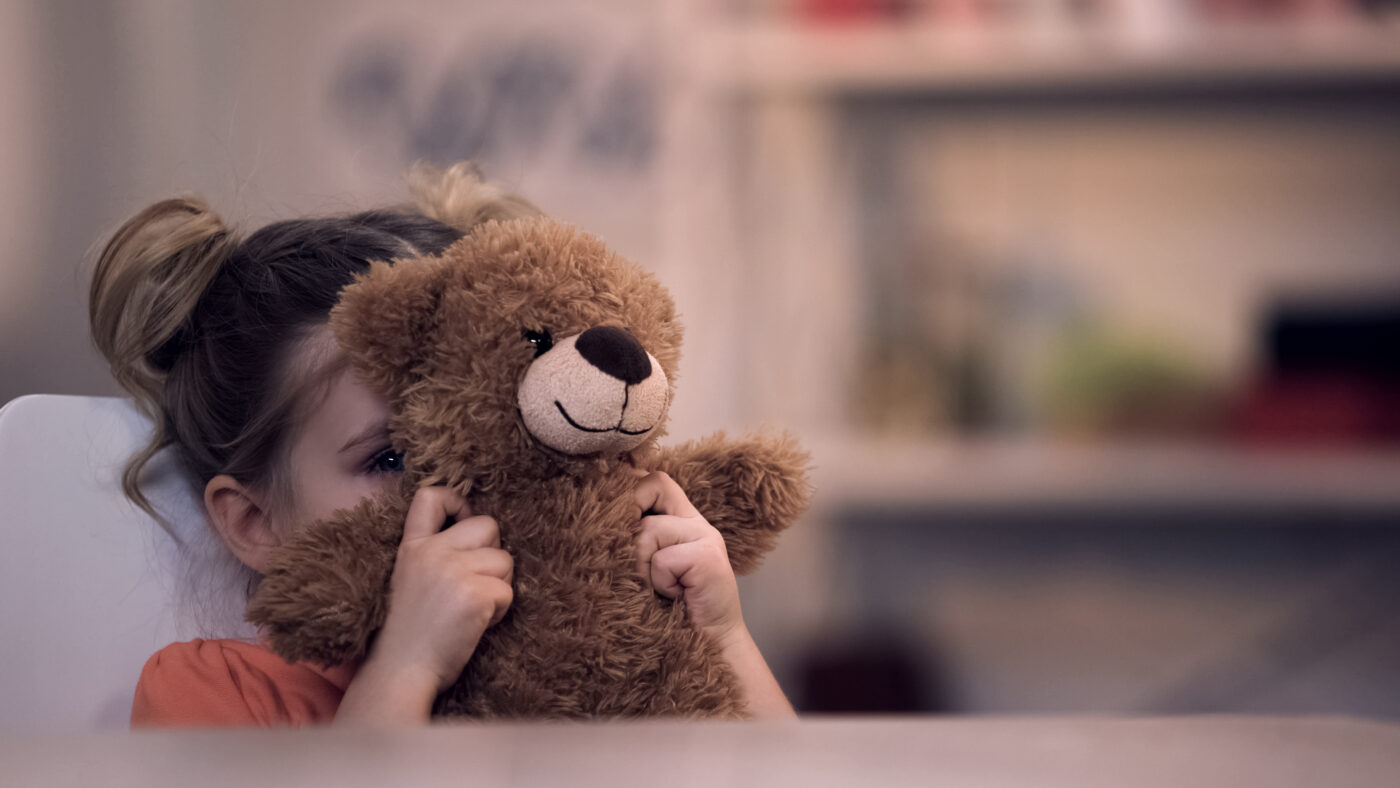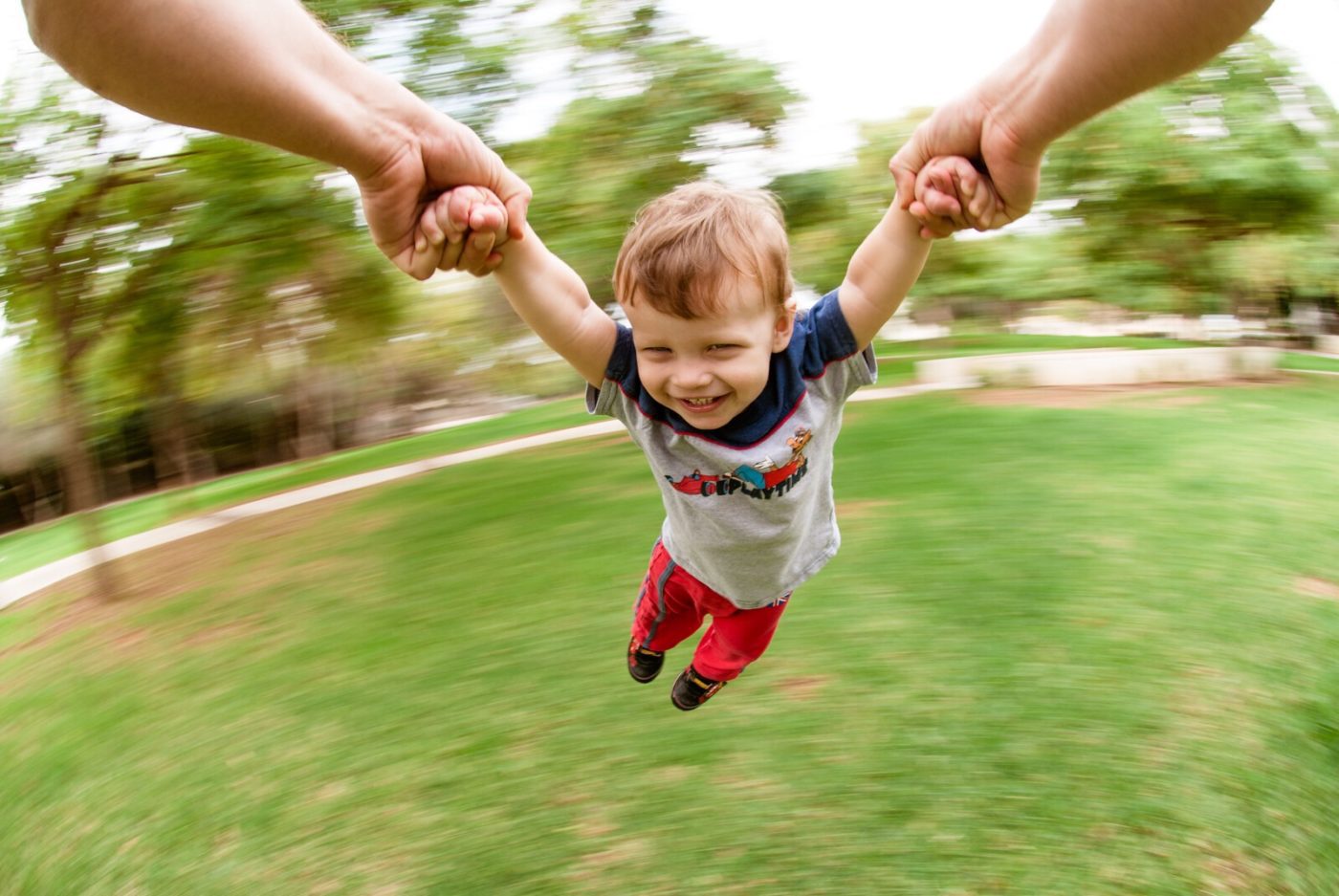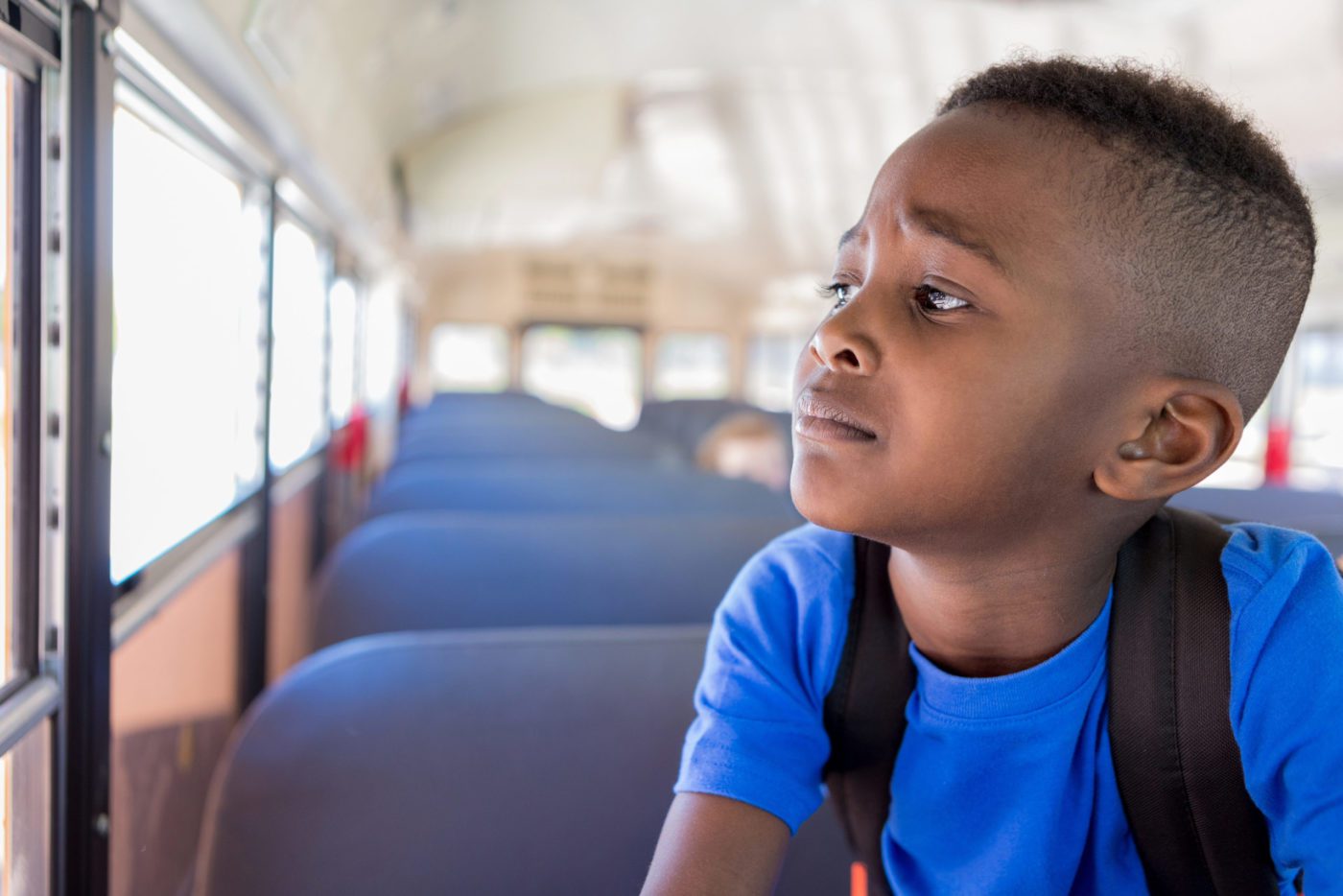My heart was pounding. “Go! You’re gonna be fine!” my parents yelled at the side of the pool. I sat at the top of the slide hesitating, thinking as much as my 4-year-old brain could. What if they’re wrong? What if I slide into the pool and sink? What if this innertube around my waist doesn’t help me float? What if I drown? Terrified, I just sat there looking at them, paralyzed. Other people were shouting now, trying to encourage me. My dad got in the pool and began to tread water right near the end of the slide. “I’m right here,” he assured. That’s all I needed. Still scared, I pushed off and flew down and into the water, where the innertube held me. That wasn’t bad at all. Why did I hesitate?
I’ll never forget that experience. My parents helped me conquer a childhood fear. My trust in them grew. I didn’t question them as much after that day. When they told me to go, I was much quicker to leap. I knew they weren’t going to put me in a bad position. We want to develop that type of trust with our kids, and a great way to do it is by helping them overcome their fears. Here are the 9 most common childhood fears explained and how best to handle them.
1. Separation From You
This is a common fear for babies since they bond with you, but it’s normal in younger kids as well. Start by leaving your child with someone they are familiar with, a grandparent, aunt or uncle, or a friend. Leave for a short time. Never linger during the dropoff. Give them a hug and a kiss, tell them when you will pick them up, and go.
2. Strangers
I’m not talking about “stranger danger,” which is good for kids to know. This is when your baby encounters a new person and begins to cry for no apparent reason. Or when your child hides behind you when meeting someone. Encountering new people is one of the most common childhood fears. A 2011 study found that the way a father responds to people socially can have a huge impact on a child. If you have social anxiety, you may pass it on.
3. Loud Noises
Have you ever had lightning hit close by? The thunder probably startled you, mainly because you didn’t know it was coming. That’s how babies and young kids are much of the time. A lot of sounds are new to them and loud ones jump up out of nowhere. Be mindful of your reactions. Again, your kids are tuned into you. Try to prepare kids beforehand if you know there are going to be new or loud noises.
4. The Dark
Being wired or overtired may contribute to this, so start by getting your kids on a regular sleep schedule if they’re not. Cut down on their sugar intake and screens, especially close to bedtime. Adding nightlights and stuffed animals can help give them comfort.
5. Monsters
When kids start to get a little older, the imagination awakens. But the fear could have more to do with being alone. Nighttime can be a lonely time for kids. It may be a way of getting attention. Show them there is nothing in the closet or under the bed. You can also take their minds off of it by lying down with them and playing one of their favorite audio books. Just make sure you tell them that you’re only staying for a little while.
6. Animals
They tend to look a lot bigger to a child and they’re unknown. Teach your kids how to interact with the animal beforehand if possible. Take the lead and show them the animal is safe.
7. Physical Pain
Needles at the doctors office, drills at the dentist, broken bones, cuts, bruises, and bumps. Help them understand that pain is temporary. It doesn’t last nearly as long as they think. Sometimes we just have to persevere, tough it out, or have courage for a short period to outlast pain.
8. Failure
As kids enter into the tween and teen years, they are more able to process the consequences of their actions—in particular, the effects of failure. Make sure they know that failure gives us opportunities to grow. Share your own failures, and give your kids permission to risk and fall short.
9. The Unknown
If we’re honest, this scares a lot of us adults too. There are many unknowns for kids. Teach your kids that the unknown doesn’t always have to be feared. It’s just something to learn about and understand. Show them the beauty of curiosity.
Sound off: What were some of your childhood fears? How did you overcome them?











Huddle up with your kids and ask, “What are some of your biggest fears?”